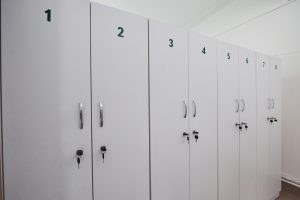Drug addiction is a chronic disease that many Americans struggle with every day. Victims who struggle with it often need urgent treatment to get and stay sober. Many rehabilitation centers offer medication-assisted treatment in different settings and for various lengths of time based on the patient’s condition.
So, if you are going into rehab and wondering how long you will be there, the simple answer is “as long as you need to learn how to stay sober.”
However, the entire process isn’t always that simple because many considerations will impact how long you stay in a rehab facility.
Other than the severity of your addiction, other things that your doctor will assess to determine how long you need to stay in rehab include your age, the substance you have been abusing, the existence of co-occurring mental health issues, and whether you have been treated before.
This article discusses everything you need to know about drug addiction treatment program length. Read on to learn more.
Understanding the Process of Getting Rehab Treatment
Before we dive into discussing how long you will stay at a rehab facility, let us figure out how drug addiction treatment looks like.
Generally, the entire treatment can be broken down into three phases: detox, treatment, and aftercare. Before you begin treatment, make sure you set goals and put plans in place that will help you stay sober long after being discharged from the rehab facility.
Drug addiction treatment starts with medical detox to flush out the drug substance you have been using from your body. This can be frightening for many patients because it may lead to uncomfortable withdrawal symptoms. Medical detoxification is done under the strict supervision of a medical doctor.
Medical detoxification takes anything between seven to ten days. However, withdrawal medications such as buprenorphine can shorten the length of detoxification.

After detox, comes the actual treatment that can last from 30 days to more than a year, depending on addiction severity. If your condition is severe, you will require a longer stay at the rehab facility.
The treatment phase usually implements different forms of therapy and counseling to replace unhealthy behaviors with more positive behaviors. Therapy and counseling sessions can take place in individual or group settings. Medication may also be involved at some point.
The fight to stay sober doesn’t end with treatment. Doctors understand that your cravings for drug substances can occur anytime, especially after you are released from the rehab facility.
In fact, the National Institute on Drug Abuse estimates that the relapse rate for drug addiction is as high as 60%.
To prevent relapse, your doctor will recommend aftercare. This phase involves self-help programs such as joining support groups to help you stay sober.
Drug Addiction Treatment Program Lengths
Before we highlight the different program lengths, it is critical to recognize that how you recover from drug addiction will be different from anyone else’s recovery journey.
However, there are several drug addiction treatment programs to choose from based on your needs and condition. The general lengths of rehab programs are:
- 30-day treatment programs.
- 60-day treatment programs.
- 90-day treatment programs.
- Extended programs.
Before choosing a program, conduct research and focus on something that offers you the highest chance of long-term success. Most drug addiction patients need at least 30 days in a rehab facility to get sober and recover from addiction.
Research shows that the best outcomes happen with relatively longer duration of treatment. While lengthier programs can seem intimidating at first, they end up producing the best results that will make you proud of the decision.
30-Day Treatment Programs
A 30-day treatment program provides you with an excellent way to start your drug addiction treatment. In most cases, you won’t know how long you will need to stay in rehab.
So, the 30-day program provides you with clear insight on what to expect to help you make an informed decision on whether you should continue with a longer length program or not.
The 30 days offers you ample time to overcome any withdrawal symptoms you may experience and allow you to start establishing relapse prevention strategies.

This is also the right time to discuss the treatment options that may suit you with a medical doctor and develop an aftercare plan. A 30-day program is a good starting point because it is relatively easier to commit to and evaluate the results.
Since it is relatively short, it is also offered at a relatively lower cost, and many insurance companies will cover the program fully.
60-Day Addiction Treatment Program
A 60-day treatment program is designed to offer extra time and support during recovery. You will have plenty of time to undergo medical detoxification, deal with any withdrawal symptoms that may manifest and attend counseling sessions to discuss any family, situational, or mental factors that might have led to your addiction.
A 60-day treatment program gives you enough time to completely detox from the drug while allowing you time and space to practice positive behaviors that will be critical in your long-term sobriety.
If your insurance company doesn’t cover the cost of the entire 60-day treatment program, many rehab facilities have flexible payment plans that allow you to make smaller monthly payments.
90-Day Treatment Programs
A 90-day treatment program may seem intimidating at first, but you need to keep in mind that the longer you seek treatment and have all the support you need, the higher your chances of achieving and maintaining sobriety.
In fact, 90-day programs have the highest success rates when it comes to drug addiction treatment. In a 90-day program, you will go through medical detoxification, therapy, counseling, self-help groups and even set up a comprehensive aftercare plan.

This program is excellent because it gives you plenty of time to adjust to life without drugs and strengthen your skills in resisting temptation in the future. You will have enough time to identify your triggers and how to deal with them.
The 90-day program is highly recommended for individuals with severe or long-term addictions.
Extended Care Options
If you still need additional care after 90 days, you may want to consider the extended care options that offer structured home environment support for as long as you need to stabilize and stay sober.
With extended care options, you will immerse yourself in a sober living environment that is drug and alcohol-free. You get a sober living house that is relatively affordable and all the support you need to stay sober.
You will work on a flexible recovery plan and interact freely with the peers around you to stay sober. This is an excellent step if you feel like you are not ready to go back to the outside world and still need some support to learn how to stay sober.
Get Help for Drug Addiction
You must always keep in mind that you are unique, so is your life experience. Therefore, the amount of time you spend in a rehab facility won’t depend on how long others have spent there. There is no proven formula, and everything will depend on your unique circumstances.
When you are in rehab, the only thing you need to do is focus on your recovery. Don’t allow other things such as the uncertainty of how long you will stay there to distract you. Enjoy all the support you get there and let things unfold as they should.
If you need help with opioid addiction, we are here for you. Contact us today and let us develop a personalized treatment plan for you.



